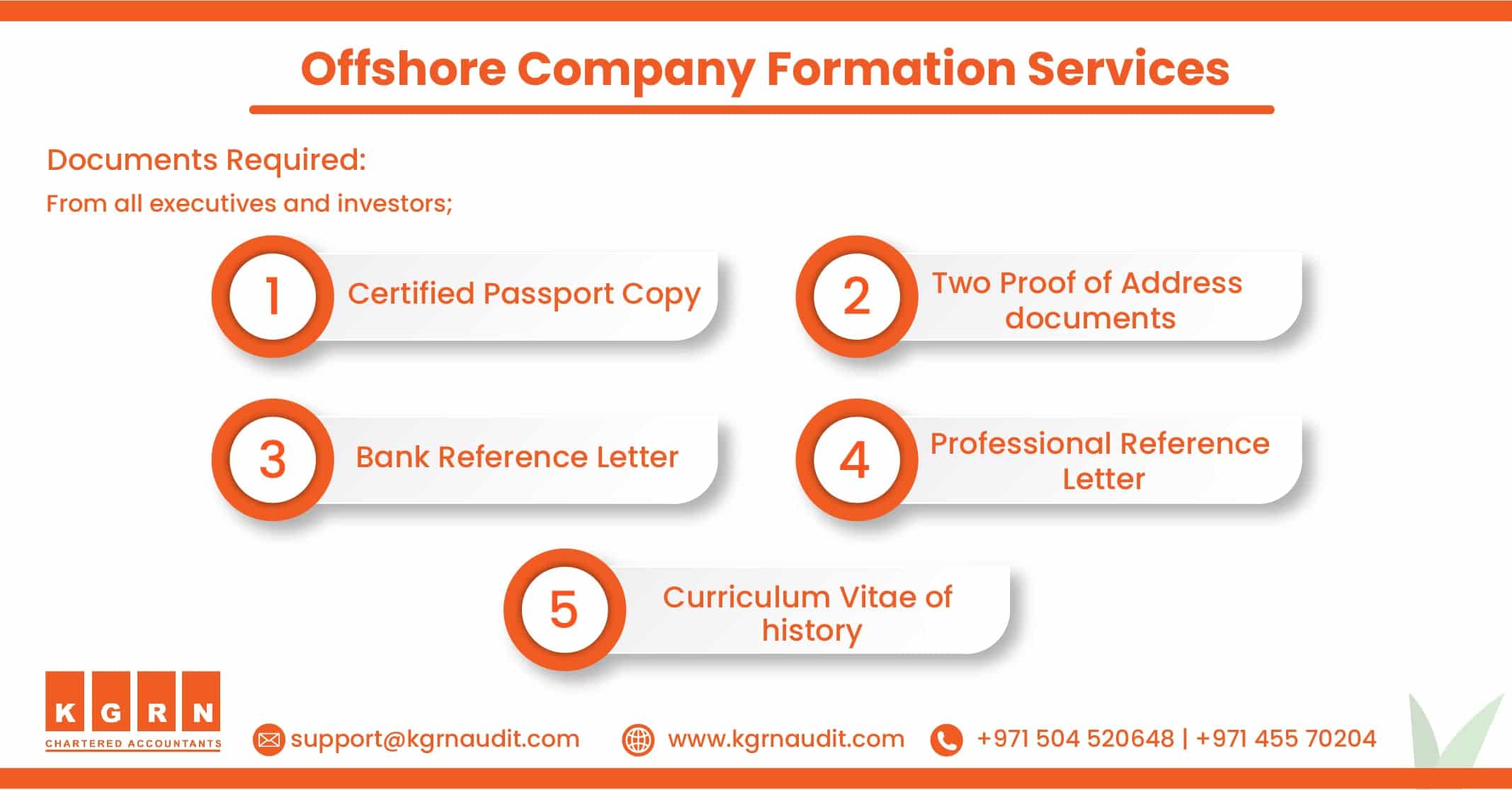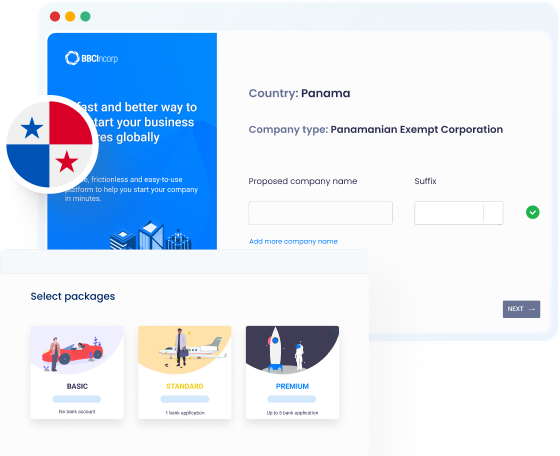Easy-to-Follow Offshore Company Formation for Founders
Easy-to-Follow Offshore Company Formation for Founders
Blog Article
Navigating the Globe of International Service: Insights on Offshore Company Formation
Offshore Company Formation presents a critical method for global company procedures. It supplies significant benefits, such as tax optimization and enhanced privacy. The procedure is not without its challenges. Recognizing the intricacies of numerous territories and regulative demands is vital. As companies think about these options, the steps involved can considerably affect their long-lasting success. What are the essential variables that can lead to reliable offshore monitoring?
Comprehending Offshore Companies: Meaning and Function
Offshore companies have come to be a centerpiece in international company discussions as a result of their special lawful and monetary structures. These entities are established in jurisdictions outside of the owner's country of home, typically with desirable regulatory environments. Usually, offshore business serve numerous functions, such as asset defense, tax optimization, and enhanced personal privacy. They can run in several industries including modern technology, profession, and finance, giving adaptability for worldwide operations.The specifying attribute of an offshore Company is its capability to conduct organization internationally while profiting from reduced tax responsibilities and regulative problems. This structure interest entrepreneurs and investors looking for to expand their portfolios and handle risks successfully. Additionally, lots of offshore jurisdictions offer incentives to draw in international financial investment, resulting in an increase in the Formation of these business. Comprehending the meaning and purpose of overseas business is crucial for navigating through the intricacies of global business and resources flow.
Secret Advantages of Offshore Company Formation
The Formation of an overseas Company uses a number of compelling benefits that bring in investors and entrepreneurs alike. One of the primary advantages is tax obligation optimization; numerous territories offer beneficial tax rates or exceptions, permitting services to optimize earnings. Furthermore, offshore companies usually enjoy better privacy, as lots of jurisdictions have strict personal privacy laws shielding the identities of Company proprietors and shareholders.Another significant advantage is asset defense. Offshore entities can safeguard possessions from political instability and financial downturns in the owner's home country. These business can help with worldwide profession, offering easy accessibility to global markets and simplifying cross-border transactions.The adaptability in corporate framework also allures to business owners, as offshore business can be customized to satisfy certain operational needs. On the whole, the calculated Formation of an overseas Company can lead to improved economic safety and security, operational effectiveness, and a robust worldwide presence.

Typical Challenges in Establishing Offshore Entities
Developing overseas entities offers numerous difficulties that businesses have to browse. Key concerns consist of regulatory compliance, which can differ significantly throughout territories, and the influence of cultural distinctions on procedures. In addition, organizations must take into consideration the prices and threats connected with keeping an overseas presence, which can impact overall viability.
Regulatory Conformity Issues
When they seek to establish offshore entities, steering regulative compliance problems poses considerable challenges for services. Each territory has its own set of regulations and regulations, which can differ extensively and may be difficult to navigate. Firms frequently face difficulties pertaining to tax compliance, anti-money laundering regulations, and reporting needs. Additionally, modifications in global tax legislations can create unpredictability, making it crucial for organizations to remain updated on compliance responsibilities. Failing to comply with these laws can cause serious charges, including penalties and reputational damages. Recognizing the legal structure and engaging with neighborhood experts is essential for successful offshore operations, ensuring that organizations can operate within the boundaries of the law while enhancing their worldwide approach.
Social Distinctions Influence

Expense Factors To Consider and Risks
Steering via the economic landscape of offshore entity Formation offers numerous expense factors to consider and intrinsic dangers. First arrangement costs frequently consist of lawful fees, enrollment expenses, and compliance fees, which can gather considerably. In addition, ongoing maintenance expenses such as yearly fees and accounting solutions should be factored in. Furthermore, varying regulative environments in different territories position risks, potentially causing unanticipated costs or lawful complications. Businesses may also encounter challenges related to taxation, banking, and reputational issues, which can affect success and operational effectiveness. Possible entrepreneurs must conduct comprehensive due diligence and monetary forecasting to alleviate these risks and guarantee lasting growth. Comprehending these expense considerations is important for effective offshore service endeavors.
Steps to Establish an Offshore Company
Establishing an overseas Company entails a number of vital steps that need cautious consideration. Key factors include guaranteeing and choosing the suitable jurisdiction conformity with local policies, along with collecting needed documents. Understanding these aspects is important for an effective overseas service setup.
Choosing the Right Territory
Choosing the best territory is important for anyone seeking to establish an offshore Company, as it can significantly influence business's lawful commitments, tax obligation obligations, and operational simplicity. Numerous factors should be thought about, consisting of the political stability, regulatory atmosphere, and tax obligation incentives used by potential territories. Popular selections commonly include countries with favorable tax obligation regimens, such as the British Virgin Islands or Cayman Islands, as a result of their reduced or absolutely no tax rates. Additionally, the simplicity of operating and the credibility of the territory can affect investor self-confidence and market gain access to. Ultimately, a well-informed choice based upon extensive study will certainly assure the overseas Company is placed for long-lasting success and compliance with international standards.
Called For Documents and Compliance
When establishing an offshore Company, comprehending the needed documents and conformity requirements is important to guarantee a smooth procedure. Trick files commonly consist of a certification of unification, a memorandum and articles of association, and evidence of identification for directors and shareholders. Some jurisdictions may need additional details, such as company plans or financial institution references. Conformity with neighborhood laws is crucial, which frequently includes assigning a signed up representative and preserving a registered office. Normal reporting and adherence to tax obligation commitments should also be considered. Failure to follow these requirements can bring about charges and even dissolution of the Company. Comprehensive preparation and consultation with legal professionals can help browse these intricacies successfully.
Picking the Right Territory for Your Offshore Company
Exactly how can one establish the most ideal jurisdiction for an offshore Company? Selecting the best jurisdiction calls for careful factor to consider of several factors. Initially, the lawful and tax atmosphere plays an essential duty; territories with positive tax regimes may improve service productivity. Additionally, the political stability and economic climate of an area can impact lasting organization viability.Another essential facet is the availability of financial services and banking framework, which help with smooth procedures. Potential company owner must also think about the convenience of operating, including the rate of enrollment and the quality of regulations.Furthermore, language barriers and social distinctions can impact procedures; for that reason, aligning with a jurisdiction that aligns with service objectives and individual convenience is essential. Inevitably, complete research and specialist advice can guide business owners in making a notified choice that straightens with their strategic objectives.
Conformity and Governing Factors To Consider

Ideal Practices for Handling an Offshore Company
Managing an offshore organization needs critical preparation and precise implementation to enhance efficiency and alleviate threats. Initially, developing a robust compliance structure is necessary to browse varying regulations across jurisdictions. Normal audits and threat evaluations aid recognize potential vulnerabilities.Moreover, leveraging local knowledge through collaborations with local specialists can boost operational efficiency and cultural understanding. Using innovation, such as cloud-based monitoring systems, enhances communication and data management, allowing better decision-making. Additionally, keeping clear monetary records and making certain timely tax filings are essential to maintain the Company's stability. Purchasing team training and development cultivates a knowledgeable workforce, promoting advancement and adaptability.Finally, developing clear performance metrics and essential performance signs (KPIs) assists analyze company development and notify critical changes. By sticking to these best practices, companies can effectively handle their offshore operations, ensuring long-lasting success and sustainability in an affordable global industry.
Frequently Asked Concerns
What Is the Cost of Creating an Offshore Company?
The price of forming an offshore Company differs extensively depending on territory, legal demands, and solutions required. Typically, expenditures can vary from a couple of hundred to numerous thousand dollars, consisting of registration, compliance, and yearly charges.
How much time Does It Take to Develop an Offshore Entity?
The moment called for to establish an overseas entity varies substantially, usually ranging from a couple of days to numerous weeks (offshore company formation). Variables affecting this duration consist of jurisdiction, called for documentation, and the efficiency of the company involved
Can Individuals Type Offshore Companies Without a Company Companion?
People can certainly create offshore firms without an organization companion. Numerous territories permit single-member entities, empowering business owners to establish and manage their businesses individually, while still taking advantage of possible tax advantages and legal protections.
Are There Any Type Of Tax Obligation Advantages for Foreign Investors?

What Kind Of Companies Commonly Make Use Of Offshore Companies?
Offshore companies are often utilized by various fields, consisting of technology, financing, and e-commerce. These entities commonly serve objectives such as property defense, tax obligation optimization, and personal privacy, interesting both individual business owners and multinational corporations. Offshore firms have actually become a focal factor in international business discussions due to their one-of-a-kind lawful and economic structures. They can operate in multiple sectors consisting of finance, technology, and trade, providing adaptability for international operations.The defining quality of an overseas Company is its capacity to perform business globally while profiting from decreased tax responsibilities and regulative burdens. Additionally, overseas firms typically enjoy higher privacy, as numerous territories have stringent privacy laws safeguarding the identities of Company owners and shareholders.Another significant advantage is asset security. These firms can assist in international trade, supplying very easy accessibility to worldwide get more info markets and simplifying cross-border transactions.The flexibility in corporate structure also allures to company proprietors, as offshore business can be customized to satisfy particular functional needs. Selecting the right jurisdiction is essential for anybody looking to set up an offshore Company, as it can greatly impact the organization's legal commitments, tax liabilities, and functional simplicity.
Report this page